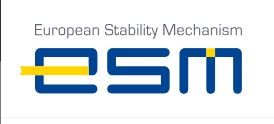The European Commission proposed on 29 September a set of measures to improve the working conditions in platform work and to support the sustainable growth of digital labour platforms in the EU.
Advertisement
What are the main challenges the Commission’s proposals aim to tackle and how?
The aim is to improve working conditions in platform work and, at the same time, support the opportunities, innovation and flexibility the platform economy offers.
Challenges can range from misclassification of people’s employment status, to a lack of transparency and predictability of their contractual arrangements, as well as health and safety risks, and inadequate access to social protection.
The Commission’s proposals aim to:
- Correctly determine the employment status of platform workers through a set of clear criteria, giving them access to existing labour and social rights, including right to a minimum wage (where it exists), collective bargaining, working time and health protection, the right to paid leave or improved access to protection against work accidents, unemployment and sickness benefits, as well as old-age pensions. This will also bring increased legal certainty for digital labour platforms which will be faced with reduced litigation costs and less administrative burden by avoiding individual court cases;
- Provide more transparency, rights and accountability with regards to algorithmic management on digital labour platformsby helping people to better understand how tasks are allocated and prices are set, and enable them to contest decisions that affect working conditions if needed;
- Improve enforcement and traceability of platform work, including in cross-border situations by asking platforms to declare the work in the country where it is performed and make available to national authorities certain information about the people who work through them and their terms and conditions;
- Strengthen collective bargaining and social dialogue. The proposed Directive introduces the need to inform and consult platform workers and their representatives on algorithmic management decisions. It asks digital labour platforms to facilitate communication channels for people working through them to organise themselves, and to be contacted by workers’ representatives. The draft guidelines empower solo self-employed people including those working through digital labour platforms to influence and improve their working conditions through collective bargaining and increased social dialogue.
How can EU action help improve working conditions in the platform economy?
So far, very few EU Member States have adopted national legislation specifically targeting the improvement of working conditions and/or access to social protection in platform work. In most cases, national legislation only tackles platform work challenges indirectly. In addition, where national legislation on platform work has been introduced, it only focuses on specific sectors, notably ride-hailing and delivery services.
On the other hand, litigation is on the rise. To date, there are more than 100 court decisions and 15 administrative decisions in the EU dealing with the employment status of people working through platforms. In most cases, the judges have ruled to reclassify independent contractors as workers, and platforms as employers. A few have confirmed the self-employed status. Many more court decisions are pending.
A common EU legal framework will grant platforms and self-employed people the legal clarity they need to conduct their activities, also helping them to more easily expand their operations across the Single Market and make the most of its business opportunities. It will also level the playing field among platform companies and vis-à-vis traditional businesses that employ workers. An EU legal framework also establishes minimum rights for all people working through platforms in the EU, which will improve their working conditions.
What are digital labour platforms?
Digital labour platforms are internet-based companies that intermediate and organise the work provided by workers or self-employed people to third-party clients. The work can either be provided in a specific physical location “on location” (e.g. food delivery, ride-hailing) or online (e.g. data encoding, translation services).
The business model of digital labour platforms builds on algorithm-based technologies to efficiently match supply and demand for labour or services. These platforms offer possibilities for people to make a living or earn additional income. Especially those who otherwise might face difficulties to enter the labour market can benefit, such as young people, people with a migrant background or those with caring responsibilities.
What is the current state of the EU platform economy?
There are more than 500 digital labour platforms active in the EU. They include international companies as well as small national or local start-ups. The majority of these platforms provide “on-location” services. Revenues from the platform economy in the EU are estimated to be as high as 20 billion. However, today, digital labour platforms are faced with a patchwork of different laws and rulings across the EU, which makes it difficult for them to expand their business across borders.
More than 28 million people in the EU work through digital labour platforms. By 2025, their number is expected to reach 43 million. However, around 55% of people working through platforms earn less than the net hourly minimum wage of the country they are working in. On average, people working through platforms spend 8.9 hours per week doing unpaid tasks (e.g. researching tasks, waiting for assignments), versus 12.6 hours doing paid tasks.
What is the relationship between platform companies and the people who work through these companies?
Platform work can be subject to different degrees of control by the platform. Depending on the degree of supervision, digital labour platforms can be considered as employers of people, whose work they organise and control.
“People working through platforms” or “persons performing platform work” refers to individuals whose work is organised through a digital labour platform, regardless of their legal employment status (worker, self-employed or any third-category status, which may exist at Member State level).
To date, over 90% of digital labour platforms in the EU classify the people working through them as self-employed. Out of the estimated 28 million people working through platforms in the EU, 5.5 million may be currently misclassified. The remaining 22.5 million people are deemed to be correctly classified, either as workers or as self-employed.
As a result, some people working through digital labour platforms are denied the labour and social rights that would come with an employment status. These include the right to a minimum wage (where it exists), collective bargaining, working time and health protection, the right to paid leave or improved access to protection against work accidents, unemployment, sickness and old-age pension.
At the same time, the genuinely self-employed people working through platforms will obtain more clarity on their terms and conditions and be able to better understand the mechanisms underpinning the assignment and proposal of tasks. This should improve their income security and predictability.
What are the main elements of the proposed Directive?
The Directive the Commission proposes today:
- Provides a list of criteria to determine whether a digital labour platform exercises control over a person, and therefore whether the person should be presumed to be a worker. If at least two of the criteria are met, the platform is considered an employer.
- Asks Member States to ensure that the presumption of the employment status is effective, and can be enforced as well as be rebutted. This includes establishing a framework to ensure that the legal presumption applies in all relevant administrative and legal proceedings and that enforcement authorities, such as labour inspectorates or social protection bodies, can rely on that presumption. Member States should also take supporting measures to ensure the effective implementation of the legal presumption, such as developing relevant guidance for digital labour platforms, people working through platforms, social partners and enforcement authorities. Member States should also strengthen controls and field inspections.
- Establishes a new set of rights for people subject to algorithmic management in platform work. Such rights will provide workers and their representatives with the necessary information about how their work and assignments are allocated, accounts are rated or terminated. The new rights will also ensure human monitoring and review of decisions that significantly impact the working conditions.
- Asks digital labour platforms to declare work in the country where it is performed and provide national authorities with information on people working through them and their terms and conditions. This will lead to improved monitoring and enforcement.
How will the ‘rebuttable presumption’ of the employment status work in practice?
The rules proposed by the Commission today look at the platform rather than at the individual worker. When a platform exercises a certain degree of control over the people performing work through it, the platform will be ‘presumed’ to be an employer. This means that people working through it under the same conditions will be ‘presumed’ to be workers.
The proposed Directive clarifies that the correct determination of the employment status should be based on the principle of the primacy of facts, i.e. guided primarily by the facts relating to the actual performance of work and the remuneration, taking into account the use of algorithms in platform work, and not by how the relationship is defined in the contract.
The proposal puts forward a list of criteria, of which at least two need to be fulfilled for platforms to be presumed to be employers. The criteria in the draft Directive will help determine the degree of control, for instance looking at any restrictions on the freedom of people to organise their work. The criteria are:
- determining the level of remuneration or setting upper limits;
- supervising the performance of work through electronic means;
- restricting the freedom to choose one’s working hours or periods of absence, to accept or to refuse tasks or to use subcontractors or substitutes;
- setting specific binding rules with regard to appearance, conduct towards the recipient of the service or performance of the work;
- restricting the possibility to build a client base or to perform work for any third party.
In practice, this means all national authorities, including social security bodies, will consider and treat digital labour platforms who meet at least two of the criteria as employers. Those platforms will therefore have to fulfil their obligations as employers under national and EU law vis-à-vis their presumed workers, for instance with regard to providing minimum wages (where it exists) or respecting working time, and annual and family-related leaves. Some platforms might chose to adjust their terms and conditions to ensure that they can work with the self-employed.
However, it will always be possible to challenge (‘rebut’) the employment status presumption and thereby undo its legal effects. To do this, the platform or person affected will have to prove that the relationship is not an employment relationship under national definitions and that therefore the person or certain category of persons should be considered self-employed. Where the digital labour platform argues that the contractual relationship in question is not an employment relationship, the burden of proof would be on the platform. Where the person performing the platform work argues that the contractual relationship in question is not an employment relationship, the platform would be required to assist the proper resolution of the proceedings, notably by providing all the relevant information.
When transposing the Directive, Member States should not only transpose the presumption and rebuttal in their national legal and administrative proceedings but should also put in place measures that help its implementation. They should make information publicly available on the presumption of the employment status, develop guidance for the digital labour platforms and the people performing platform work, and strengthen controls and inspections by labour inspectorates and other bodies.
What is algorithmic management and what are the new rights proposed in this regard?
Algorithmic management refers to information technology-driven automated monitoring and decision-making systems that increasingly replace the functions of managers in businesses, e.g. allocating tasks, monitoring and evaluating the work performed, providing incentives or imposing sanctions.
Digital labour platforms use algorithmic systems to organise and manage the people performing platform work through their applications or websites. People working through platforms often lack information about how the algorithms work and how decisions are taken. This includes a lack of information on how personal data is used.
The proposed Directive aims to:
- Increase transparency: People doing platform work will have the right to be informed by digital labour platforms about the automated monitoring and decision-making systems that are in use and how they affect their working conditions. For instance, they will receive information on how they are being monitored, supervised and evaluated, including by clients. They will also receive information on the elements that lead to or support significant decisions, such as allocating tasks, proposing fees and granting bonuses. Worker representatives and labour authorities will also get access to such information.
- Protect personal data: Digital labour platforms will not be able to collect or process any personal data that is not directly related to the work performed. They will also not be allowed to collect data while the person is not logged into the relevant app or the website.
- Ensure human monitoring: Digital labour platforms will have to monitor and evaluate the impact of individual decisions taken or supported by automated monitoring and decision-making systems on working conditions, such as pay or working time.
- Make it possible to contest automated decisions: People doing platform work will obtain the right to receive explanations for significant automated decisions that affect their working conditions and to contest these. Digital labour platforms will have to ensure that people performing platform work have access to a human contact at the digital labour platform to discuss decisions that significantly impact them. If asked to review its decision, the platform has to respond within a week. In case the decision breaches the person’s rights, the digital labour platform must correct the decision or provide compensation.
Will all types of platforms and all people working through digital platforms be covered by the new rules?
The proposed Directive will apply to digital labour platforms as defined in the proposal, i.e. those that organise work performed by individuals. It will not apply to online platforms which merely advertise offers or requests for services or display available service providers in a specific area. It will also not apply to providers of a service whose primary purpose is to exploit or share assets (e.g. short-term rental of accommodation).
The proposed Directive will apply to all so-defined digital labour platforms which provide services in the EU, regardless of their place of origin, provided that the platform work organised through that digital labour platform is performed in the EU.
The rebuttable presumption of the employment relationship will only apply to a subset of digital labour platforms, those that exert a certain degree of control over the people working through them. The proposal puts forward a list of criteria, of which at least two need to be fulfilled for platforms to be presumed to be employers.
All people working through digital labour platforms will obtain new rights with respect to algorithmic management regardless of their employment status. This also means that all digital labour platforms will have to comply with the new obligations on algorithmic management vis-à-vis the people who work through them. Those platforms, which are classified as employers, will have more obligations than otherwise, notably as regards health and safety protection obligations and information and consultation rights.
Finally, all digital labour platforms will have to comply with new transparency obligations to declare the work where it is performed and provide information on the people working through them and on their terms and conditions.
What will the Directive mean for self-employed people working through platforms?
Over 90% of digital labour platforms active in the EU classify the people working through them as self-employed. Most of those people are genuinely autonomous in their work and can use platform work as a way to develop their entrepreneurial activities. Such genuine self-employment is making a positive contribution to job creation, business development, innovation, accessibility of services, and digitalisation in the EU.
Some of the digital labour platforms that currently exercise a degree of control over people who work through them, may need to adjust their terms and conditions to ensure they truly operate with genuine self-employment. As a result, self-employed people might see their working arrangements being revised to make sure they are granted the full autonomy that self-employment entails. This will further strengthen self-employed people’s ability to take advantage of their entrepreneurial possibilities for example by setting their own rates or developing their own client pool. For those who are already genuinely self-employed, nothing will change. They will retain their benefits.
All self-employed people working through platforms will obtain similar rights to workers with respect to algorithmic management. This notably includes rights to an increased transparency of the automated tools deployed, and on the mechanisms to seek redress and review of algorithm-driven decisions.
What will be the impact of the proposal on businesses?
The new rules will benefit digital labour platforms by bringing about legal certainty for their business across the EU and support their sustainable growth. They will ensure that the new economy does not have a competitive advantage vis-á-vis “brick and mortar” companies by being able to save on costs through the wrong classification of platform workers as self-employed, by not paying the social benefits they are entitled to. During a phase of adaptation, some platform companies may decide to adapt their practices to avoid any risks of reclassification.
What will be the impact of the proposal on Member States?
The proposed rules will bring clarity on where platform work is done, by whom, and which Member States are responsible for enforcing relevant laws on tax and social protection. Clarity on the employment status and the related tax and social security contributions will support the sustainability of social protection systems and public budgets. It is estimated that Member States will receive between 1.6 billion and 4 billion per year in annual contributions when false self-employed are correctly classified as workers, depending on how many people are reclassified.
Why did the European Commission choose a Directive and what is the legal basis for it?
A Directive has the advantage of giving certainty about the minimum requirements and procedural obligations that Member States have to apply. At the same time, it leaves room for Member States to decide on the best way to implement those minimum requirements, without impinging on their competences and on the autonomy of social partners.
Member States can always decide to go beyond the minimum standards of the Directive. The proposal will leave room for Member States to operate within their concepts of ‘worker’ and ‘self-employed’. There will be no EU definition of a ‘worker’ and there will be no imposition of new administrative procedures. Member States will be able to integrate the presumption of the employment status into their existing legal and administrative systems.
The proposal for a Directive is based on Articles 16 and 153 (1)(b) of the Treaty on the Functioning of the EU (TFEU), on data protection and working conditions respectively.
Going forward, will the Commission tackle non-standard and precarious work beyond platforms?
Certain non-standard forms of employment are already regulated at EU level. This provides a minimum level of protection for the workers concerned and thereby combats precariousness as well as segmentation of labour markets.
For instance, the three EU Directives on non-standard forms of employment (part-time, fixed-term and temporary agency work) aim at improving the protection of the increasing number of workers concerned while also recognising the labour market role of these flexible forms of employment. Moreover, the Transparent and Predictable Working Conditions Directive modernises EU labour law and adjusts it to the new world of work. It gives new rights, in particular to on-demand, domestic workers and people working through platforms that are classified as workers. The Council Recommendation on access to social protection for workers and the self-employed also addresses the challenges of access to social protection, including people working through platforms.
The proposed Directive on platform work builds on and complements such instruments dealing with precarious and non-standard work. As the world of work changes quickly and technological developments accelerate, new challenges emerge that might need to be tackled in the future. The Commission will continue analysing the phenomenon and keep a close eye on any potential future needs to regulate the use of algorithms in the wider world of work.
How did you ensure that the voices of platform companies and people working through them were sufficiently heard?
In addition to the two-stage consultation of European social partners in accordance with Article 154 of the Treaty on the Functioning of the EU (TFEU), the Commission held exchanges with many relevant parties to inform this initiative, including dedicated meetings with platform companies, platform workers’ associations, trade unions, Member States’ representatives, experts from academia and international organisations and representatives of civil society.
Press release: Improving working conditions in platform work
Factsheet: Improving working conditions in platform work
Press release: Draft Guidelines on the application of EU competition law
Questions and answers: Draft Guidelines on the application of EU competition law
Proposal for a Directive on improving the working conditions in platform work
Source: European Commission







